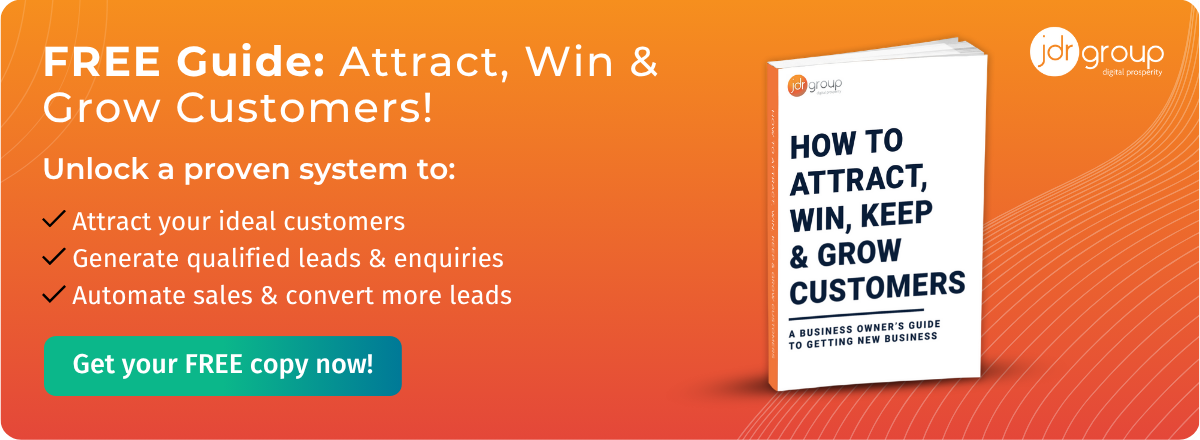Common Content Marketing & SEO Mistakes In 2025 And How To Avoid Them

In 2025, content marketing remains the backbone of inbound marketing, and it’s how you’re going to gain the bulk of your new web traffic, lead enquiries, and sales through digital channels. Unfortunately, content marketing doesn’t happen by itself, which is why a lot of businesses have historically made mistakes in implementing an effective strategy. This is why search engine optimisation (SEO) is so important.
A lot of digital ink has been spilled on this topic over the years, and there is now a good knowledge bank available to businesses about the dos and don’ts of SEO. What many of these resources lack, however, is an appreciation of how content marketing and SEO itself have changed in recent years and, as a result, how the potential pitfalls have also evolved. In this article, we look at some of the main changes in the SEO landscape and how you can avoid the most common mistakes.
SEO Best Practices: Continuities And Developments
Search engine optimisation is the process of making your content visible on the search engines, and for most of the last 20 years, ‘search engines’ have meant Google. It is high Google visibility that has been at the forefront of content marketing and SEO. This is still the case. However, recent developments in 2024 and 2025 have made it critical for businesses to adopt a broader-based SEO strategy that considers Google alongside various alternative search engines and AI-driven assistant technology.
How To Avoid SEO Mistakes
Optimising your content for major search engines like Google is the cornerstone of content marketing. However, it’s also worth looking at how you can diversify your optimisation efforts to include growing platforms such as Bing (owned by Microsoft) and DuckDuckGo. After years of being ‘the search engine that no one used’, Bing has recently gained traction through its partnership with OpenAI and the integration of a variety of AI-driven search tools that, arguably, produce more objective and reliable results than Google. At the same time, DuckDuckGo is growing in popularity because of the way that it prioritises user privacy. How do you adapt your SEO strategy to reflect this?
- Bing: Make sure your content includes structured data (for blog articles, this includes markup detailing the article type, published date, and author) to maximise visibility for the search engine bots. Multimedia data also features highly in the Bing search results, so ensure that any images and videos you use are of the highest quality.
- DuckDuckGo: the search engine seems to favour simplicity, with direct answers and privacy friendly content.
What About Visibility For AI-Driven Assistants Such As ChatGPT, Perplexity AI, Google Gemini, And Microsoft Copilot?
AI-driven search is an emerging field that is shaping the way that many consumers and businesses gather information. While it’s not always clear how AI search engines create their results, AIs often pull source information from high-ranking and high-quality sources on Google and other search engines to provide answers to user queries. To stay relevant, therefore:
- Create content that reflects conversational, question-based searches, such as How to… or What is…
- Add a good FAQ (frequently asked questions) section to your core web pages and social media to make information easily digestible to AI tools, and use FAQs as the basis for important blogs.
- The key drivers for AI recommendations are (or should be) expertise, authority, and trustworthiness (EAT), so use this as a mantra for all content creation.
What About Keywords?
Keywords are still important in SEO. However, as search algorithms become increasingly sophisticated in identifying user intent, your content must also be optimised for accessibility and ease of understanding, and be able to clearly demonstrate how it provides value to your target readers.
To succeed in content marketing, it’s also important to understand how your target audience and personas interact with both traditional search tools and emerging digital platforms. By optimising your content for multiple search platforms and AI interfaces, you increase your chances of appearing where and when your customers are looking.
Find Out More
For more information about contemporary content marketing and how to get the best value for money from your investment, please contact one of the specialists at JDR today by clicking here or by calling 01332 343281.
Image Source: Canva



